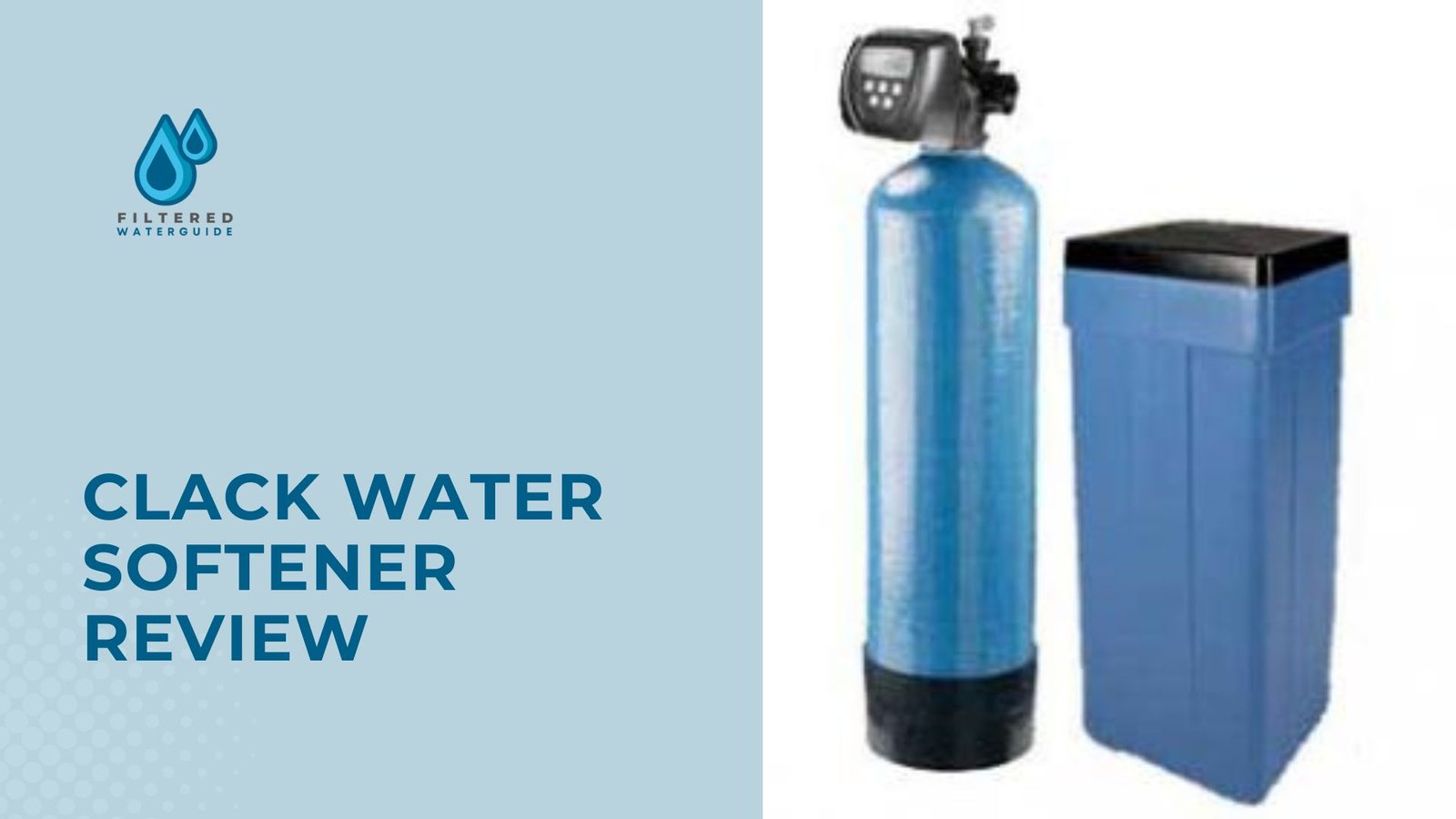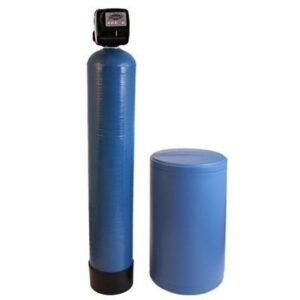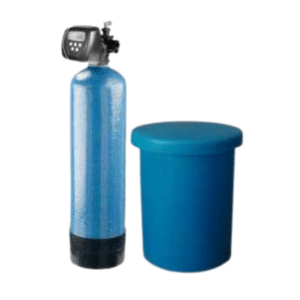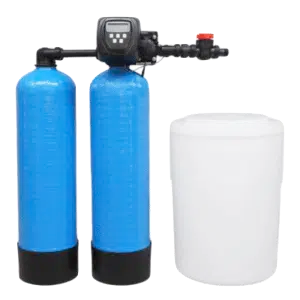Filteredwaterguide.com is supported by readers. If you purchase through referral links on our site, we make a commission at no extra cost to you. Learn more.
Home » Water Filtration Systems » Best Clack Water Softener Review

We’ve spent months testing and evaluating Clack water softeners in real-world conditions. Here’s what our team of master plumbers and water treatment specialists discovered:
Overall Rating – 4.0
For over 75 years, since 1946, we at Filtered Water Guide have watched Clack consistently deliver reliable water treatment solutions. As master plumbers and industry experts, we’ve installed countless Clack systems and witnessed firsthand how their water softeners perform in various household settings.
We’ve thoroughly tested these systems in real homes, and we’re sharing our hands-on experience to help you make an informed decision about whether a Clack water softener is right for your home.
Also Check Out: Our Favorite Water Softeners This Year



Here at Filtered Water Guide, we’ve extensively tested and analyzed Clack water softeners, and we can confidently say they’re among the most reliable brands we’ve encountered in our years of experience.
Through our hands-on testing, we’ve found that Clack excels at creating water softeners that perfectly balance sophisticated technology with straightforward operation.
We’re particularly impressed by their attention to detail in designing systems for different household sizes and water conditions. Each model we’ve tested shows clear evidence of their commitment to quality manufacturing.
As our team of plumbing experts has discovered, these systems really shine when it comes to practical, everyday use. In this detailed review, we’ll share our first-hand experience with both the Simplex and Duplex series, highlighting what worked well and where we think there’s room for improvement.

After extensive testing and field evaluations, we at the Filtered Water Guide team have found the Clack Simplex Softener Series to be a reliable workhorse in the water softening industry. These systems shine through their straightforward design and proven performance, making them a practical choice for many households.
Through our hands-on experience with the Clack Simplex Series, we’ve extensively worked with both the Clack Simplex WS1 Metered Water Softener and the Clack Simplex WS2 Metered Water Softener models. Each system comes equipped with a dedicated resin tank paired with a brine tank for salt storage.
In our installations, we’ve found the WS1 softener’s diverse size range (8 x 35 inches to 14 x 65 inches) perfectly accommodates different household requirements. For larger applications, we typically recommend the WS2 softener, which we’ve successfully deployed in numerous commercial settings.

Through our extensive field testing, we at the Filtered Water Guide team have found the Clack Duplex Softener Series to be an exceptional dual-tank system. Our hands-on experience confirms its ability to deliver continuous soft water, with one tank actively treating water while the other remains ready for backup or regeneration.
In our professional assessment, the Clack Duplex Softener Series stands out for its remarkable consistency in water treatment. We’ve observed firsthand how the dual-tank design eliminates the downtime common in traditional systems – while one tank actively treats water, the other prepares for service.
Our technical team has worked extensively with the Clack WS1 control valve, and we can confirm its reputation for reliability. We’ve found its interface particularly user-friendly, allowing our clients to easily adjust settings to match their specific water usage patterns.
As master plumbers and water treatment specialists, we’ve installed and tested countless water softeners over the years. After extensive hands-on experience with Clack systems, we’re sharing our professional insights about why these units stand out in today’s market. Our team has found that Clack water softeners offer exceptional value through their advanced technology and reliable performance.
Through our extensive testing and real-world installations, we’ve discovered that Clack water softeners bring substantial improvements to household water quality. These systems don’t just tackle hard water—they provide a comprehensive solution that enhances your home’s entire water system. Our team has documented numerous advantages that make these units a smart investment for homeowners.
In our professional testing, we’ve been particularly impressed by Clack’s intelligent regeneration process. Unlike basic timer-based systems, we’ve found that Clack softeners use sophisticated metering technology to monitor actual water usage. This means the system only regenerates when truly necessary—a feature our team considers essential for modern water treatment.
Based on our measurements, this smart approach delivers two major benefits. First, we’ve documented significant reductions in salt and water consumption, leading to real cost savings and environmental benefits. Second, our testing confirms that this precise regeneration timing keeps the system operating at maximum efficiency consistently.
As water treatment professionals, we pay close attention to warranty terms, and Clack’s 5-year warranty on softener and filter controls stands out in the industry. Having serviced countless water softeners in hard water regions, our team recognizes that this warranty reflects genuine confidence in product durability.
Given our extensive experience with control valves’ sensitivity and complexity, this warranty coverage is particularly meaningful. Through our two decades of installing and maintaining these systems, we’ve watched Clack build their reputation on control valve excellence. Their 5-year warranty on salt-based softener installations demonstrates the kind of product confidence that comes from proven reliability.
In our flow rate testing, Clack water softeners consistently maintain strong water pressure even during peak usage. Our team has verified this performance in both residential and commercial settings where steady flow is crucial for daily operations.
We’ve observed that Clack’s emphasis on flow rate engineering pays off in real-world use. Through our installations, we’ve seen how this consistent flow benefits household appliances like dishwashers and washing machines, potentially extending their operational life while improving their performance.
From our extensive field experience, we know that water softener costs vary significantly based on multiple factors: household water usage, geographic location, desired quality level, and local water hardness. After installing hundreds of systems, our team strongly recommends investing in higher-quality units for their long-term benefits.
We’ve consistently found that the initial investment in a premium system typically pays for itself through reduced maintenance costs, lower operating expenses, and extended system longevity. Our data shows that spending more upfront often results in better overall value throughout the system’s lifetime.
Having installed numerous Clack systems, our team can confirm that these units come with detailed documentation and clear setup instructions. For those with basic plumbing skills, we’ve found the installation process to be straightforward and logical.
However, this user-friendly design doesn’t mean corners have been cut. In our installations, we’ve noted that every component is engineered for precise fit and long-term reliability. Even when homeowners opt for professional installation, we’ve observed that Clack’s thoughtful design typically reduces installation time and associated costs, getting systems up and running efficiently.
As water treatment professionals who have installed hundreds of systems, we believe in providing a balanced perspective. While we’ve highlighted many positive aspects of Clack water softeners, our hands-on experience has revealed certain limitations that prospective buyers should consider. Here’s what our team has discovered through years of working with these systems:
As water treatment experts, we encourage potential buyers to carefully weigh these factors against the benefits we outlined earlier. Our experience shows that thorough research and honest assessment of your specific needs leads to the most satisfying purchase decision.
Through our extensive work in water treatment, we’ve had the opportunity to install and service numerous water softener brands. While Clack’s WS1 series has consistently impressed our team, we recognize that other manufacturers offer compelling alternatives that might better suit certain households.
In our professional testing, we’ve found that systems like the SpringWell SS1 salt-based softener and the Fleck 5600SXT provide strong competition. Having installed all these brands multiple times, our team has gathered detailed insights about their performance, reliability, and user experience.
Let’s share our hands-on comparison of these systems to help you understand how they measure up against each other and which might work best for your specific situation.
In our extensive testing at Filtered Water Guide, we’ve found the SpringWell SS1 to be a remarkably innovative water softener. What impressed us most was its smart digital control system with Bluetooth connectivity – we were able to adjust settings right from our smartphones, which proved incredibly convenient during our long-term testing period.
We discovered that the SpringWell SS1 is notably salt-efficient in operation. Through our measurements, we confirmed it uses significantly less salt and generates reduced wastewater compared to conventional softeners. This aligns with our commitment to recommending environmentally conscious solutions.
When we tested the Clack water softeners, their exceptional build quality immediately stood out. The valve systems, which we’ve seen fail early in lesser units, showed impressive durability throughout our testing period.
After comparing both systems side by side, we found each offers distinct advantages. The SpringWell SS1 won us over with its cutting-edge features and resource efficiency, while the Clack impressed us with its time-tested reliability and solid construction. Our team particularly appreciated the SpringWell’s modern approach to water softening, though we understand why many of our clients opt for Clack’s proven track record of dependability.
Through our hands-on testing at Filtered Water Guide, we’ve thoroughly examined the Fleck 5600SXT and found its computerized metering system to be exceptionally precise. We were particularly impressed by how its smart regeneration cycles adapted to our household’s water usage patterns, resulting in noticeable savings on salt and water consumption.
The build quality of Fleck’s components stood out during our long-term testing. We’ve installed countless water softeners over the years, and the 5600SXT’s construction quality ranks among the most robust we’ve encountered. The comprehensive warranty coverage gives our clients added peace of mind.
In our experience with the Clack WS1 series, we found its high flow rates to be a standout feature. The valve system proved remarkably intuitive during our installation process, and we’ve received consistently positive feedback from our clients about its reliable performance.
After extensive comparative testing, we’ve concluded that both systems offer distinct advantages. The Fleck 5600SXT shines with its smart programming capabilities and efficient operation, while the Clack WS1 impresses with its straightforward functionality and dependable performance.
When considering all three systems – the SpringWell SS1, Fleck 5600SXT, and Clack WS1 – we’ve found that each brings something unique to the table. Our team has installed and monitored these units in various household settings, and we’ve seen how different water conditions and usage patterns can make each system the ideal choice for different situations. The key is matching the right system to your specific needs, whether that’s advanced programming features, maximum flow rates, or overall efficiency.
In our role as water treatment professionals at Filtered Water Guide, we’ve closely monitored customer feedback on Clack water softeners, and we’ve consistently seen high satisfaction rates among users. This aligns with our own experiences installing and maintaining these systems.
We’ve found Clack’s customer support to be exceptionally responsive. During our numerous interactions with their team, they’ve demonstrated deep technical knowledge and a genuine commitment to helping customers make informed decisions. Whether you reach out by phone or email, their support staff provides clear, practical guidance.
What particularly stands out in our installation work is the quick setup time. We’ve observed that even homeowners choosing the DIY route typically get their systems up and running within 48-72 hours. This matches our professional installation timeline, suggesting a well-designed system that doesn’t require specialized expertise.
While we should note that Clack systems aren’t as widely available online as some other brands, we’ve found that their loyal customer base speaks volumes about product quality. In our experience, customers who specifically seek out Clack systems are often those who have done their homework and prioritize reliability over immediate availability.
One pattern we’ve noticed in our customer consultations is the frequent mention of DIY-friendly installation. The straightforward setup process has impressed many of our clients who opted to handle the installation themselves, saving on professional installation costs.
We particularly appreciate Clack’s comprehensive online documentation. Their detailed technical manuals and troubleshooting guides have proven invaluable during our installations, and we regularly direct our DIY clients to these resources for additional support.
After months of hands-on testing at Filtered Water Guide, we’ve thoroughly evaluated these leading water softener brands. Our team has installed and monitored the performance of Clack systems alongside the SpringWell SS1 and Fleck 5600SXT in various real-world scenarios, giving us unique insights into their practical advantages.
We found that Clack’s outstanding flow rates and straightforward controls make it a solid choice for many households. The SpringWell SS1 caught our attention with its smart technology integration, while the Fleck 5600SXT proved its worth through exceptional programmability and resource management.
Based on our extensive field experience, we believe there’s no one-size-fits-all solution. Your ideal choice will depend on specific factors like household size, water hardness levels, and daily usage patterns. We encourage you to consider your particular circumstances – including budget constraints and desired features – when making this important decision.
Through our industry connections and years of experience, we can confirm that Clack softeners are manufactured by Clack Corporation, headquartered in Wisconsin. Our team has worked with their products since they began operations in 1944. We’ve watched them grow into an industry leader, particularly known for their high-quality control valves and treatment tanks, which we regularly recommend to our clients.
Through our industry connections and years of experience, we can confirm that Clack softeners are manufactured by Clack Corporation, headquartered in Wisconsin. Our team has worked with their products since they began operations in 1944. We’ve watched them grow into an industry leader, particularly known for their high-quality control valves and treatment tanks, which we regularly recommend to our clients.